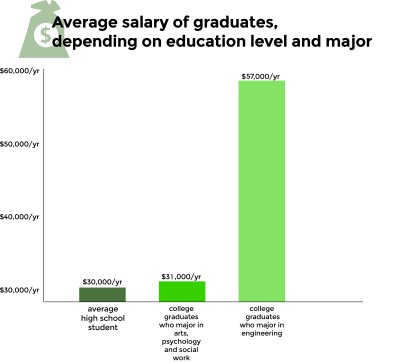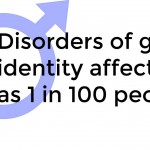
Recent college graduates fare better than high school graduates in getting jobs, but unemployment rates vary by college majors, a Thursday a study by the Georgetown University Center on Education and the Workforce found.
The study, titled “Hard Times to Better Times,” examined the unemployment rates and wages of college graduates from various majors against those of recent and experienced graduates with only a high school diploma. The research used data since 2009 from the American Community Survey, a questionnaire from the United States Census Bureau.
Anthony Carnevale, director of the Center and the lead researcher, said the job market for college graduates has improved as the country’s economy recovers.
“It looks as if that the problems that college graduates have been having in the labor market have been about the recession and not the value of college education,” he said. “What we’re seeing is a continuation of the [economic] trend in the ’90s and early 2000s, and that means that it’s very likely that trend will continue as the recovery proceeds.”
Graduates who studied engineering earn almost double what workers straight out of high school make, while those who majored in the arts, psychology or social work earn only $1,000 above the average salary of a high school graduate, the report stated. Those with a graduate degree in most science, technology, engineering and mathematics fields earn more than 200 percent what the average high school graduate makes.
Carnevale said those who doubt the value of college argue that employers are not looking for college graduates as much as before.
“This study is saying that’s not really true,” he said. “Yes the value of college has gone down. Yes, the unemployment rate out of college is going up, but as college wages have gone down about $5,000, wages for high school graduates have gone down even more … On average, college graduates are getting a $1 million more over a 45-year career than people with high school degrees.”
Approximately 20 percent of college students earn high school wages, Carnevale said. Center researchers plan to study the same groups of data again before 2017 to reexamine the trends they’ve observed.
BU’s Center for Career Development has tracked students’ career statuses through surveys in a report called First Destination. About 72 percent of respondents from the class of 2013 said they were fully employed, and 12 percent said they would attend graduate school. For the class of 2012, 69 percent were fully employed, and 15 percent were in graduate school.
A. David Brown, assistant director for mechanical engineering in College of Engineering, said the study’s results matched what he had previously thought. However, he cautioned students not to generalize the study’s implications.
“In this job market, it certainly pays to go to college, work hard and get a degree, and typically, the rewards will be there if you do that, but it’s also important to choose colleges carefully and make decisions based on the cost of going to college versus the earning potential that you expect with your career path after college,” he said.
Several students said it was good to hear that prospects for college graduates are strong, but they were not surprised that having a college degree matters.
“It’s good news, but I wasn’t on the liberal arts track studying English. I was more on the job focus from the start,” said Oliver Sherman, a junior in the School of Management.
Asfiya Maredia, a junior in the College of Arts and Sciences, said she always had known a college degree was important for succeeding in the job market, but some manage to find work without finishing college.
“Most people [need a degree],” she said. “[But] there are Mark Zuckerbergs in the world.”
Gabriela Serrano, a sophomore in CAS, said it is not shocking to hear college is important and necessary to obtain a job.
“I didn’t even realize it was news,” he said. “I thought it was all way more prospective [for getting a job] definitely to go to college. That’s just the way I was raised. It wasn’t even an option.”





While studies like this make folks think engineering jobs are goId. They are not, nir are they plentiful. As a hiring manager in electronic engineers wit 30 yrs experience, I can say the field is going diwn in the US. Want a job in India or China, yes. Here no. Each quarter i layoff staff in favor of off shore folks since stock price matters to engineering companies.